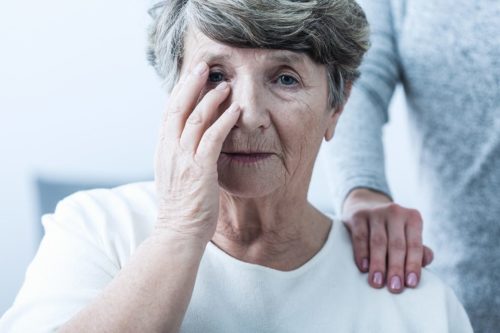By Chloe Elmer
Dementia doesn’t just cause memory loss; there are often other symptoms present. Stigma and denial of families and caregivers from the resulting symptoms, such as depression and delirium, can lead to a delayed-treatment time.
A recent Philadelphia Inquirer entitled “‘Mom, I Didn’t Steal Your Dentures’: Coping When Dementia Turns to Delusion,” by Stacey Burling, a medical writer for the Philadelphia Inquirer, says “70 percent to 90 percent of people with dementia have psychiatric symptoms at some point.”
Delusions and paranoia may turn to aggression or hallucinations. This article explores this issue as it relates to dementia, why it sometimes takes so long for families or caregivers to seek help for the patient, and why it’s important for the patient to be seen sooner.
Olga Achildi, MD, a clinician at the Penn Memory Center and geriatric psychiatrist and medical director for the inpatient psychiatry unit of Pennsylvania Hospital, says the delay isn’t due to just stigma, but the denial by family members that their loved one is affected.
“They don’t want to interpret somebody’s agitation as a psychiatric symptom of dementia,” Achildi told Burling, adding that families should seek help when they need it “because it’s a lot easier to manage these psychiatric symptoms earlier on without them getting out of control.”
But Achildi says in the meantime, for caregivers, remember the next time someone they are caring for with dementia says something outlandish that “it’s the disease talking,” and find ways to neutralize the situation.
Read the whole article on Philly.com.
Photo from IStock.com
